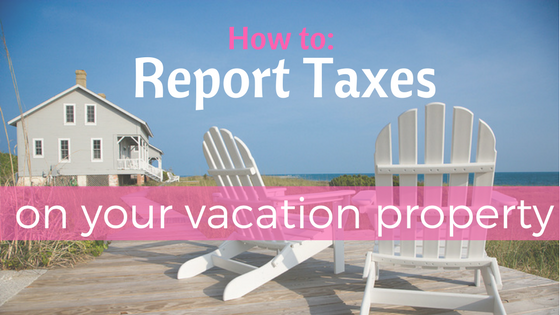Summertime is a great time of year to rent out your property for vacation rental. If you are renting out your home, you need to be up to speed of the tax implications of residential/vacation home rentals.
Renting your home out for vacation purposes generally requires you to report the rental income on a tax return. It can also allow certain expenses to be deductible, which would reduce the total amount of taxed rental income.
Dwelling Unit
A dwelling unit could be an apartment, condo, house, mobile home, vacation home, or even a boat. It is possible to use more than one dwelling as a residence during the year.
Used as a Home
The dwelling unit is considered as a residence if you use it for personal purposes for more than 14 days or 10% of the total days rented to others. Rental expenses cannot be more than the rent that is received.
Personal Use
This means use by you as the owner, or your family, friends, or other property owners and their families. Personal use would include anyone paying less than the rental price. Usually, rental income must be reported in full, and any expenses need to be divided between personal and business purposes.
Divide Expenses
Special rules can apply to the rental of a home, apartment, or another dwelling unit that is used by you as a residence during the taxable year.
How to Report
You can use Schedule E to report your rental income and expenses on Supplemental Income and Loss. It also may be subject to Net Investment Income Tax. You can use Schedule A to report deductible expenses on Itemized Deductions. This could include things such as mortgage interest, property taxes, and casualty losses.
Special Rules
If your dwelling unit is rented for less than 15 days during the year, none of the rental income is reportable, neither are the rental expenses deductible.

